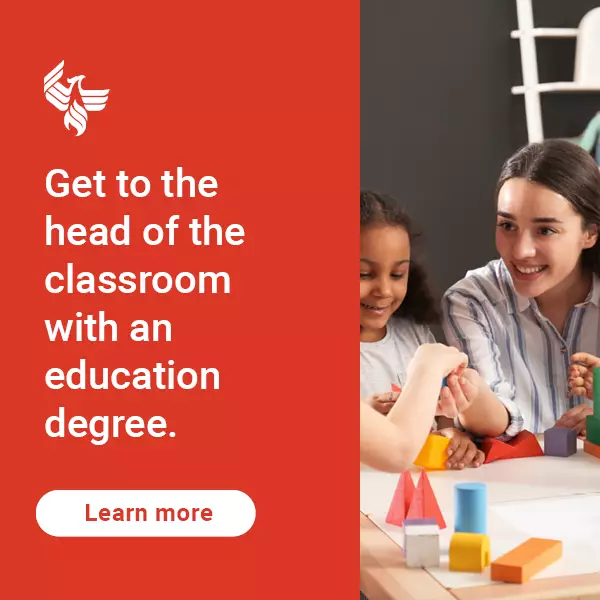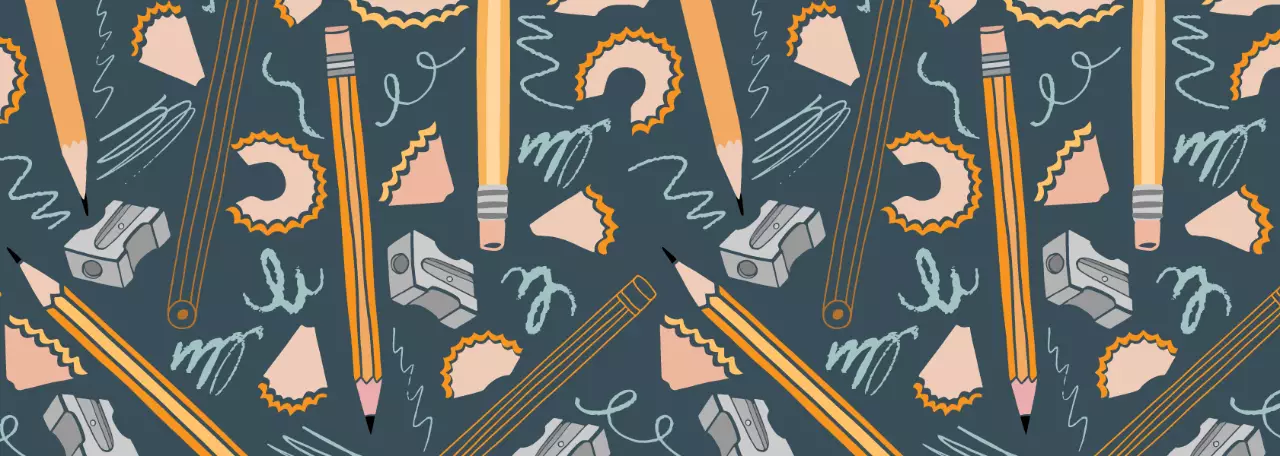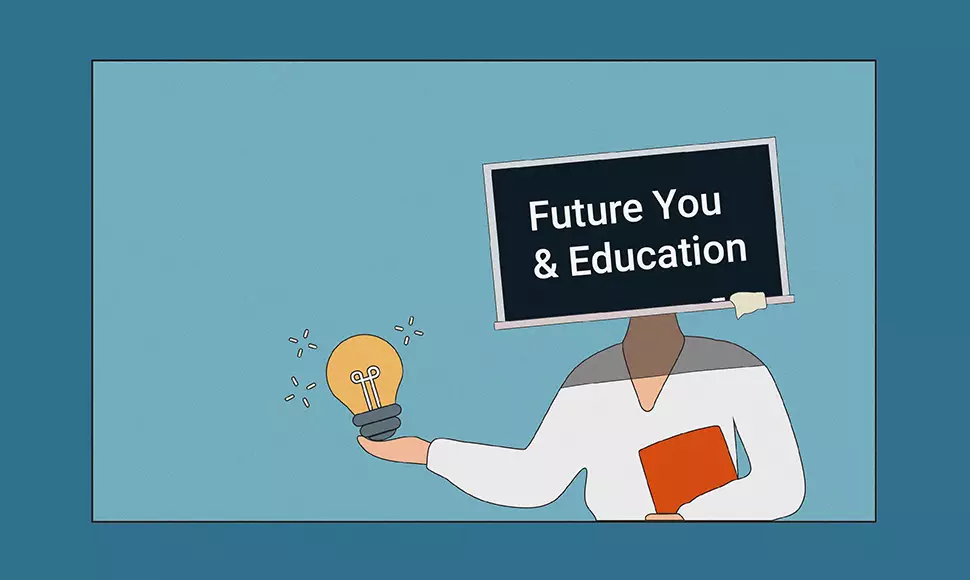Requirements to become a K-12 teacher
By Elizabeth Exline
This article has been vetted by ∆fl…´ ”∆µ's editorial advisory committee.Ã˝
Read more about our editorial process.
This article was reviewed byÃ˝Pamela M. Roggeman, EdD,Ã˝Dean of the College of Education
At a glance
- While all states require a bachelor’s degree to become a K-12 teacher in a public school, a teaching degree may not be required, and other pathways exist to become a teacher.
- Charter and private schools may enjoy greater freedom with regard to requiring teacher certification and degrees, although they are subject to state laws.
- ∆fl…´ ”∆µ offers an online Bachelor of Science in Education to prepare teaching candidates for licensure.
When it comes to childhood aspirations, many students may seek to follow in their teacher’s footsteps and enter the teaching profession. In fact, plenty of teachers will attest that going into the profession is more of a calling than a choice.
If that sounds about right, then you’re probably wondering what exactly is required to become a teacher. Do you need a teaching degree? Do you have to have a master’s in education or a doctorate? What about certificates and certifications?
The fact isÃ˝you don‚Äôt always need a teaching degreeÃ˝to become a teacher. That‚Äôs good news for those who arrive late to the proverbial classroom party and decide mid-career (or even mid-degree) that they were actually meant to teach. Here‚Äôs what you need to know when it comes to building a career as a teacher.
Making the grade in education
The nonprofit, nonpartisanÃ˝Ã˝cites several surveys that underscore what the evening news has long reported: Schools are grappling with aÃ˝serious teacher shortage.
While it might be easy to blame COVID-19 for this trend, the pandemic really only accelerated it. And that’s not necessarily a bad thing. Crippling as such shortages may be right now, they’re good for spotlighting real concerns that demand remediation.
All of which is to say that the field is undergoing a veritable reckoning with opportunities to discover (or rediscover) your passion for educating.
Education requirements to become a public school K-12 teacher
The requirements to become a public school K-12 teacher vary according to state. Some states require aspiring teachers to take the Praxis test. Some, like Virginia and Kentucky, have their own, state-specific Praxis exams. Others, like Michigan and Arizona, don’t require candidates to take the Praxis exam to earn licensure.
Every state, however, mandates that public school teachers have a bachelor’s degree, even if it’s not a teaching degree, per se.
The traditional pathway to becoming a teacher is:
1.Ã˝Ã˝Ã˝ Earn a bachelor‚Äôs degree.
2.Ã˝Ã˝Ã˝ Successfully complete a teacher education program, some of which are state-approved.
3.Ã˝Ã˝Ã˝ Successfully complete a certification or licensure exam, such as the Praxis test.
Not for you? Not to worry. Here are some other pathways to the head of a classroom.
Obtain a teaching certification
To teach, you must have a teaching certification or license in the state where you wish to work. This is essentially proof that you have fulfilled the requirements laid out by the state in which you plan to teach.
If you have a bachelor’s degree in something other than education, a teacher education program can help you get up to speed on the skills necessary for licensure.
At ∆fl…´ ”∆µ, for example, the Graduate Alternative Pathway/Secondary Education Certificate prepares candidates for teacher licensure as a secondary school teacher. It‚Äôs ideal for career-changers or those who have a degree in something besides teaching.
The credits from the Graduate Alternative Pathway can be applied to a Master of Arts in Education/Secondary Teacher Education, which is helpful for teachers looking to enhance their teaching skills and education or add a second major to complement their teaching degree.
For licensed teachers who wish to enhance their skills and knowledge in a specific area, such as education leadership or special education, an education certificate can be a good next step.Ã˝
Work at a private school
While the K-12 space has some flexibility with regard to teacher credentialing requirements, charter and private schools have even more latitude. This is partly because these schools are set up differently.
Like public schools, charter schools are publicly funded, tuition-free schools, although they don’t always receive the same amount of funding as public schools. Furthermore, they operate according to individual agreements (aka “charters”) with state or local governments, which outline things like operational rules and performance standards. As a result, some charter schools don’t require all teachers to hold a state license or certification.
Private schools, meanwhile, can choose not to receive any government funding, which frees them from restrictions pertaining to curriculum, admissions and, yes, teacher certification. Teaching requirements are up to the state in which the teacher is practicing, but private schools may elect not to apply to be state chartered, meaning they’re not required to have teachers with licenses teach in their schools.
Of course, that freedom can work the other way too. Some private schools require that teachers not only be certified but also hold a postgraduate degree, such as a master’s degree or doctorate.
Charter and private schools, depending on their focus, may prefer their teachers to be subject matter experts rather than in possession of a general teaching certificate. The highly performing is one example of this approach. Its teachers hold bachelor’s degrees or higher, but teacher certification isn’t required.
Ã˝
Start as a substitute
Whether you’re looking to get the lay of the land regarding a teaching career or just get your foot in the door, substitute teaching can be a good first step.
As with teaching degree and certification requirements, each state dictates substitute teaching requirements. Some states, such as Kansas and Oregon, have eased requirements in response to teacher shortages. Generally speaking, however, substitute teachers:
- Must pass a background check
- Must possess at least a GED or high school diploma
- May need to have a bachelor’s degree and certification
Keep in mind that work as a substitute teacher is unpredictable, and there are no guarantees of a full-time position, even if you work as a long-term substitute.Ã˝
Get an emergency teaching certificate
Widespread disruptions and displacements in the educational sphere have forced school districts to get creative when it comes to putting teachers in classrooms. In addition to loosening requirements for substitute teachers, these measures include issuing emergency teaching certificates.
Available through certain school districts across the country, these certificates allow candidates to teach for the duration of a school year. Again, the criteria for an emergency teaching certificate vary among states, although a bachelor‚Äôs degree and a skills assessment are generally required.Ã˝
Reasons to get a degree in education
While it's possible to find yourself in a classroom with a degree in a different subject, sometimes it’s a good idea to get the teaching degree anyway.
For starters, a Bachelor of Science in Education gives candidates a framework for effective teaching and the proper foundation to pass licensure exams. It also positions teachers to enhance their careers down the road. With a bachelor’s, they can pursue an advanced degree, such as a Master of Arts in Education or a Doctor of Education, along with such specializations as administration or curriculum development.
Perhaps the biggest reason of all, however, is that you’re in the classroom to inspire students to work hard, be curious and thrive intellectually. What better way to do so than to model those qualities yourself?
Do you see yourself as a teacher? Click here to learn more about ∆fl…´ ”∆µ online education degrees and education certificate programs.Ã˝
Ã˝
Want to read more like this?








